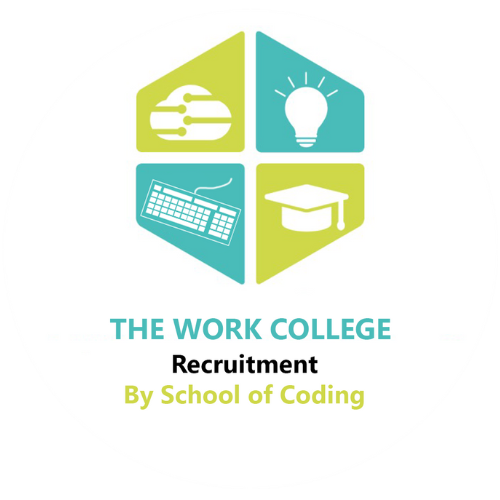Introduction
The employment market is rapidly changing, and students must prepare themselves with key employability skills to remain competitive. Employers today look for people with a combination of technical knowledge and soft qualities that can boost productivity and innovation. But what are these critical talents, and how can students acquire them?
In this post, we’ll look at the top ten must-have employability skills for students in 2025, offering useful insights into how these abilities improve career prospects and position students for long-term success.
Top 10 Must-Have Employability Skills for Students to Succeed in 2025
1. Communication Skills
Effective communication is one of the most desirable employability skills in any field. Employers reward applicants who can communicate their ideas in writing, speaking, or giving presentations. Strong communication skills promote teamwork, minimise misunderstandings, and improve workplace productivity.
How To Improve:
- Practise public speaking.
- Practice active listening.
- Work on writing clear and concise emails.
According to LinkedIn research, 92% of hiring managers believe soft skills like communication are equally vital as technical skills.
2. Problem-Solving Skills
Critical thinking and problem-solving skills assist pupils in analysing problems, developing creative solutions, and making educated judgements. Employers seek applicants who can face unforeseen challenges with confidence and ingenuity.
How To Improve:
- Participate in hackathons and case contests.
- Play strategy-based games.
- Work on real-world projects.
Key Takeaway: According to the World Economic Forum, problem-solving is one of the top five abilities required for the future workforce.
3. Teamwork and Collaboration
Most jobs require teamwork. Employers are looking for people who can collaborate well with others, respect other points of view, and contribute effectively to a team.
How To Improve:
- Join group initiatives or student organisations.
- Volunteer in team-based activities.
- Increase emotional intelligence to better comprehend others.
According to a McKinsey analysis, companies that promote cooperation enhance output by 22%.
4. Digital Literacy
Digital literacy is becoming increasingly important in the workplace as technology advances. Students should be conversant with fundamental digital tools, cybersecurity best practices, and emerging technology applicable to their sector.
How To Improve:
- Take online classes on digital technologies (Excel, Google Workspace, etc.).
- Learn the fundamentals of coding
- Stay up to current on technology trends.
Insight: According to one UK research, 82% of professions today demand some level of digital abilities.
5. Adaptability and resilience
The ability to adapt to change and remain resilient in difficult conditions is critical in today’s ever-changing employment market. Employers prefer applicants that welcome change and have a positive attitude in the face of uncertainty.
How To Improve:
- Step outside your comfort zone.
- Develop a growth attitude.
- Learn from setbacks rather than dread them.
Key Fact: A survey by the Chartered Institute of Personnel and Development (CIPD) revealed that 76% of employers rate adaptability as a key employability skill.
6. Time Management and Organisation
Effective time management increases productivity and enables employees to meet deadlines efficiently. Organisational skills enable pupils to prioritise assignments and work more efficiently.
How to Improve:
- To improve task management, consider using apps such as Trello or Notion.
- Set SMART goals.
- Break down things into manageable bits.
Fact: A Forbes survey found that employees who efficiently manage their time are 40% more productive than those who do not.
7. Leadership Skills
Even if students do not aspire to leadership responsibilities right once, displaying leadership traits might help them stand out. Employers respect those who take the initiative and motivate others.
How To Improve:
- Take up leadership roles in student organisations.
- Learn how to delegate duties successfully.
- Practice decision-making in real-life circumstances.
Fact: According to a Harvard Business Review research, the top soft skills employers look for are leadership abilities.
8. Emotional Intelligence (EQ)
Emotional intelligence (EQ) is the capacity to comprehend and control emotions, both in oneself and others. It is essential for developing strong professional relationships and promoting workplace harmony.
How To Improve:
- Demonstrate empathy in daily interactions.
- Learn conflict-resolution skills.
- Develop self-awareness through reflection.
Key Insight: According to research, 90% of top-performing employees have strong emotional intelligence.
9. Creativity & Innovation
Employers respect innovative thinkers who bring new ideas and solutions to the table. Creativity is not restricted to the arts; it can be used to solve problems and innovate in any business.
How To Improve:
- Engage in brainstorming sessions.
- Explore various activities and perspectives.
- Challenge traditional thinking.
Fact: According to IBM research, 60% of executives consider creativity to be the most crucial aspect of leadership.
10. Networking and Relationship Building
Building excellent professional relationships can lead to job chances. Networking enables students to connect with mentors, industry leaders, and possible jobs.
How To Improve:
- Attend industry gatherings and career fairs.
- Create a professional LinkedIn profile.
- Request informational conversations with specialists.
Insight: According to a LinkedIn poll, networking is responsible for 85% of job placements.
Conclusion
Mastering the top ten employability skills will provide pupils with a competitive advantage in today’s employment market. Students who develop good communication, problem-solving, computer literacy, and networking skills will be well-suited for any job route.
Employers are increasingly looking for workers who can adapt, lead, and collaborate effectively. By developing these abilities early on, students can position themselves for long-term success in the job.
If you want to improve these abilities further, look into The Work College’s courses on career readiness and employability.
Frequently Asked Questions (FAQs)
Why are employability skills important?
Employability skills serve as the foundation for career readiness by bridging the gap between academic learning and workplace requirements. While technical knowledge may get you in the door, employability skills—such as communication, teamwork, problem-solving, adaptability, and digital literacy—will allow you to thrive once inside. These abilities demonstrate to employers that you can effectively contribute to their company, collaborate with coworkers, and adapt to changing needs. For students, strengthening employability skills early not only boosts their chances of gaining internships and graduate positions but also fosters long-term confidence and resilience in their chosen career path.
What are employability skills primarily focused on?
Employability skills are primarily concerned with improving a person’s ability to perform well in a professional setting. They go beyond subject-specific knowledge, focusing on transferable skills that are applicable across sectors. This includes:
- Interpersonal skills include the capacity to communicate effectively, collaborate in groups, and manage relationships.
- Self-management includes abilities such as organisation, time management, and accountability.
- Problem-solving and critical thinking involve using logic and imagination to tackle problems.
- Adaptability and resilience involve responding positively to change and recovering from setbacks.
- Digital and technology literacy entails confidently using the tools and platforms required in modern businesses.
In essence, they aim to develop well-rounded individuals who can adapt to a variety of positions, industries, and changing job markets.
How can I improve my employability skills?
Improving employable skills necessitates a combination of self-awareness, practice, and exposure to new opportunities. Here are a few effective strategies:
- Participate in extracurricular activities – joining organisations, societies, or volunteering positions helps to improve collaboration and leadership.
- Take part-time jobs or internships – Real-world experience enables you to improve your communication, time management, and customer service abilities.
- Pursue continual learning – short courses, certificates, and workshops in digital tools, leadership, and project management will help your CV.
- Seek feedback – Asking professors, mentors, or managers for constructive criticism can help you discover and improve your weaknesses.
- Working on personal projects, such as creating an app, writing a blog, or arranging a community event, demonstrates creativity, problem-solving ability, and devotion.
By regularly applying yourself in a variety of settings, you will gradually build a strong portfolio of employability abilities that employers appreciate highly.
Are employability skills necessary for professional success?
Absolutely. Employability abilities are frequently the determining element in job advancement. Technical knowledge may get you employed, but employability skills will determine how far you advance. For example, a software developer who can clearly express concepts, cooperate with varied teams, and adapt to new technologies is much more likely to move to leadership positions. Similarly, a healthcare student with great empathy, organisation, and teamwork abilities will provide higher-quality care and distinguish themselves in a competitive sector.
Employability skills enable long-term work success by making you adaptable, resilient, and future-ready. In a labour market that is always changing—driven by technology, globalisation, and changing workplace cultures—these skills enable you to not just survive but also succeed.








